Gum disease is extremely common amongst New Zealand adults, although many Kiwis may not even realise they are affected.
There are two stages of gum disease; gingivitis, the more mild form, and periodontitis, the advanced form of gum disease.
It can be a good idea to understand exactly what gum disease is, the difference between the two forms, and how you can prevent it in the first place.
Gingivitis
Gingivitis is the mild form of gum disease, and is extremely common amongst adults.
Symptoms of gingivitis include inflamed, red, and even bleeding gums. For example, you may notice a little blood when you spit out your toothpaste.
The cause of gingivitis is the build-up of plaque and tartar on your teeth and below the gum line. This occurs when you don’t brush and floss often enough or well enough, which allows the natural bacteria in your mouth to thrive.
As the bacteria thrive, plaque and tartar start to build up on your teeth, which irritates the gums and causes the redness, swelling, and bleeding that indicate gingivitis.
The good news is that gingivitis is treatable. If you spot any of the symptoms, you can visit your dental hygienist for a professional cleaning, which removes the built-up tartar from your teeth (this isn’t something you can do yourself at home). They will also instruct you on the best practices for brushing and flossing at home.
Periodontitis
Periodontitis is the more advanced form of gum disease.
Symptoms of periodontitis also include red, swollen and bleeding gums, but it tends to be more severe with painful chewing, bad breath, loose teeth, sensitive teeth, and pockets around the teeth at the gum line.
Periodontitis occurs when gingivitis is left untreated and allowed to fester. It can also be more likely for patients who have diabetes or are smokers.
Unfortunately, periodontitis is not something that can be cured. There are a number of treatment options that can help to keep it from getting worse, but once the gum disease reaches this advanced stage, it is something you will be managing for life.
If periodontitis is left untreated, it can lead to the loss of teeth, the deterioration of the jaw bone, and other health issues.
How to prevent gum disease
Prevention is significantly easier that treatment, so it’s best to focus on avoiding gum disease entirely.
The best way to prevent gum disease is simply to brush and floss well and regularly. This helps to keep plaque from building up on your teeth in the first place.
Additionally, be sure to attend regular appointments with your dentist and hygienist. Your dentist will check for signs of gum disease and other dental issues, and your hygienist will provide a professional cleaning to remove any plaque or tartar from your teeth. Without these regular checks, you run the risk of having gum disease without being aware of it, and of the gum disease worsening without professional intervention.
Gum disease is one of the most common dental issues amongst adults, and one of the greatest threats to your dental health. Make an appointment with Central Hutt Dental today for a check-up with a dentist or a professional cleaning with a dental hygienist to help keep your teeth and gums healthy and avoid gum disease.






